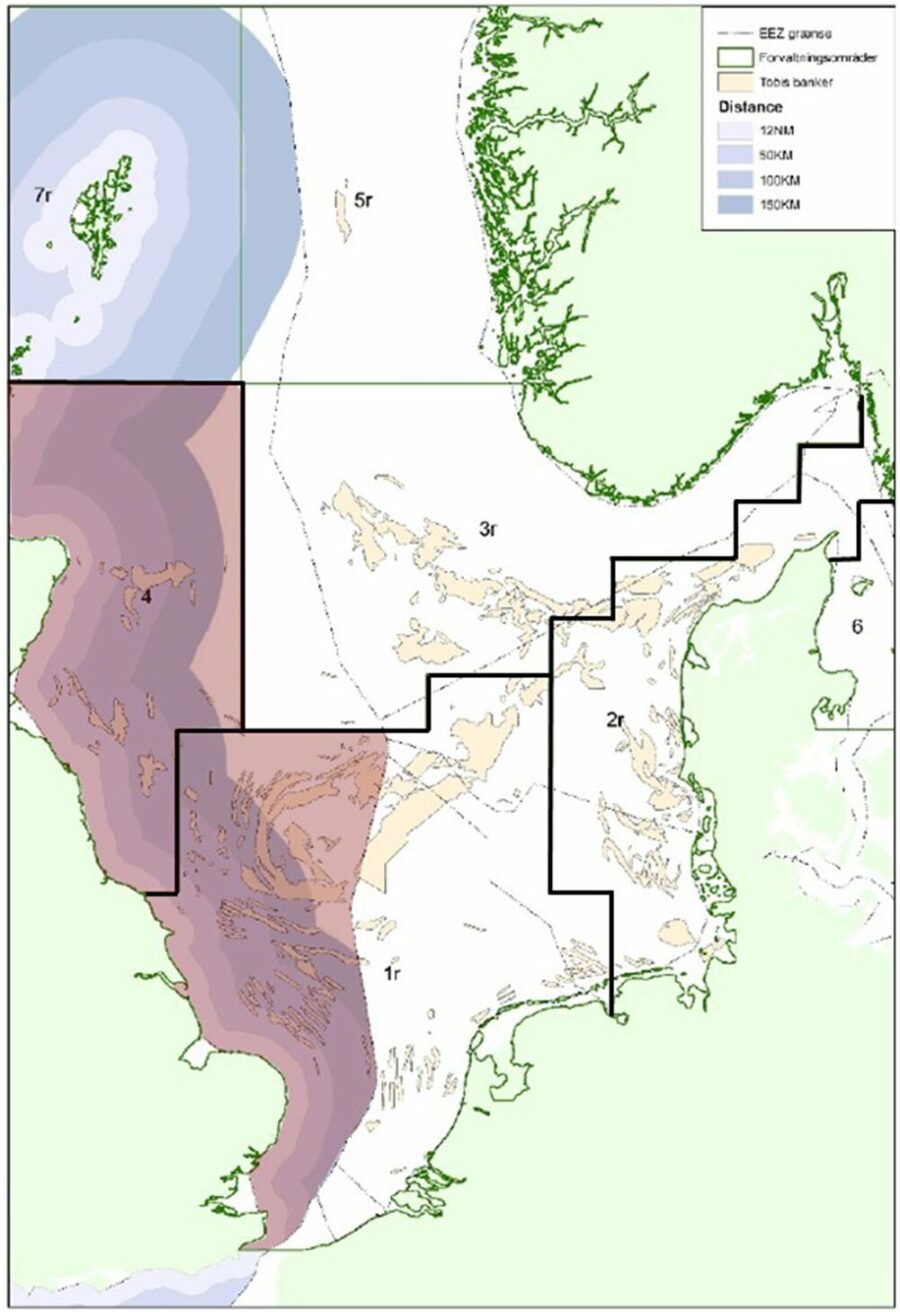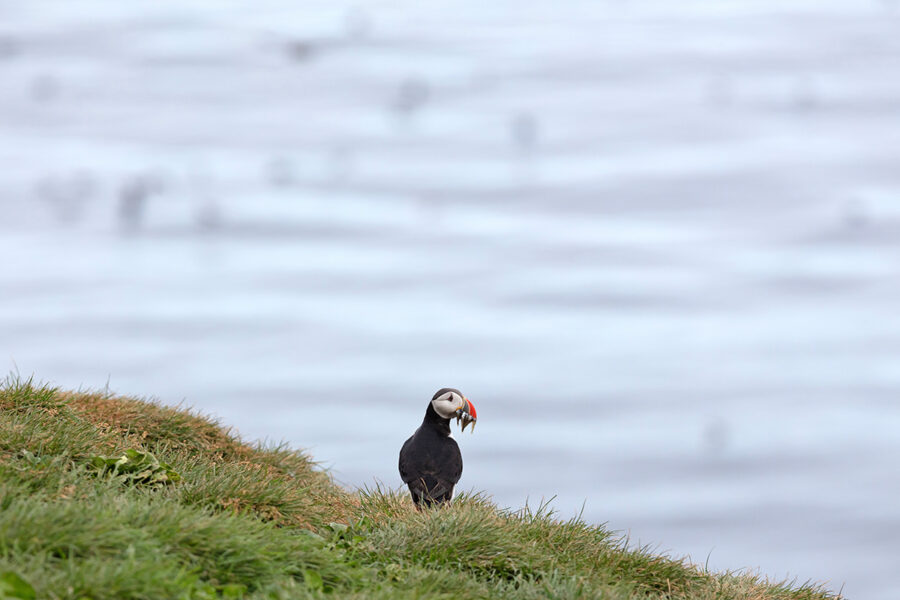Both sides have claimed victory in the arbitration of the long-running dispute between the UK and EU over the UK sandeel ban, which Danish fishermen say is costing them £40m a year.
The majority of British news outlets reported the judges’ decision as a ‘victory’ for the UK – either over the EU, or as a ‘victory for puffins’ – in spite of the fact that the science has repeatedly shown that breeding success of UK puffins has little or no link to the sandeel stocks on the Dogger Bank.
Ian Gatt, CEO of the Scottish Pelagic Fishermen’s Association, which continues to have a nominal allocation of sandeel quota that has not been taken for many years, told FN: “Both sides seem to be claiming victory on this, and we are still trying to seek clarity and examine the detail of the sandeel arbitration judgement and what it actually means for sandeel fishing in the North Sea.”
After reviewing exhaustive bundles of evidence provided by both parties, and listening to legal arguments over three days in January, the three judges at the Permanent Court of Arbitration in the Hague rejected three out of four arguments from EU lawyers contesting the UK decision.
However, they upheld a claim by the EU that the UK’s decision to close the fishery entirely was in breach of the TCA. This was on the grounds that ‘there was a failure to have regard to the principle of applying a proportionate measure’ to EU and UK vessels alike.
A similar claim for the Scottish sandeel fishery was rejected, as were claims that the ban had been introduced without using the best available science.

Crucially, whilst the arbitration panel ruled that the UK ‘is required to take the necessary measures to comply with the ruling… in order to bring itself in compliance with the covered provisions’, there were no details as to timeframes or actions needed by the UK to reopen the fishery.
Danish fishing industry representatives have claimed that the UK must provide a response within 30 days of the judgement – a deadline that is not mentioned by UK government.
Reacting to the ruling, a UK government spokesperson said: “We welcome the clarity provided by this decision, and we will undertake a process in good faith to bring the UK into compliance on the specific issues raised by the tribunal.
“The ruling does not mean the UK is legally obliged to reverse the closure of English waters, and the decision to close Scottish waters was fully upheld.
“We remain committed to protecting our seabirds and the wider marine environment, in accordance with our commitments to the TCA and other international agreements.
“Disputes and the use of resolution mechanisms are a normal part of a mature relationship with international partners. We will continue to act in the national interest as we work towards a strong and lasting partnership with our European neighbours.”
Scottish cabinet secretary for rural affairs Mairi Gougeon also welcomed the decision, in particular the finding of the tribunal that the Scottish closure was based both on the best available science, and that it was ‘proportionate’ with respect to the TCA.
“This is an extremely positive ruling,” she said, “especially with respect to the closure in Scottish waters, where all claims have been successfully defended. As such, the prohibition of sandeel fishing in Scottish waters will remain in place.
“This outcome, with respect to Scottish waters, reflects the robust, evidence-based and transparent public consultation and processes that the Scottish government has in place.”
NFFO chief executive Mike Cohen suggested that the sandeel issue could rapidly feed into ongoing discussions already underway ahead of high-level political meetings about the TCA.
“Since the EU has stated clearly what it wants out of these talks – a multi-annual access agreement – it is high time that our government came out and said what it wants in return. There can be no need for secrecy now that the other side in the negotiations has laid out their position, so when will our government tell us what its position is?
“We have had valuable conversations with Defra ministers and supportive remarks from them, but no public statement from Keir Starmer and the Cabinet Office team leading the negotiations that they will back British fishermen and insist on a better deal than their predecessors did. Now is the time for them to be clear.
“The NFFO’s call has been very clear: exclusive access to territorial waters; rebalanced quotas; better co-operation on non-quota species management; and the maintenance of regulatory autonomy.”
Danes seek ‘way forward’ to reopen fishery
The sandeel industry – Denmark holds 96% of the quota in EU waters – continued in 2024, after the UK ban, but saw catch rates drop considerably. The fleet took just 69,000t of a TAC that had been set according to ICES recommendations at 150,579t – the ‘surplus production’ after the needs of seals, seabirds and predatory fish had been estimated.
The drop in catch rates reduced the profitability of the fishery, and increased the carbon footprint of landings. A report published last year by Marine Ingredients, the trade body for fishmeal processors, said: “A major factor in the reduced landings this season was the closure of British waters. The restriction has necessitated the exploration of alternative fishing areas, which may have resulted in the lower catch rates observed.
The Danish Fishermen’s Association and Danish Pelagic Producers’ Organisation are now calling on politicians in the EU and the UK to work together ‘so that it will be possible to fish for sandeels in British waters as soon as possible’.
Kenn Skau Fisher, CEO of the Danish FPO, told FN: “We hope to find a way forward that respects the ruling, that is acceptable to the UK. Before the UK ban, we said that we could easily find a way forward, supporting the birds and in respect of the fisheries.”
“We have always said that it is completely out of dimensions to close a sustainably certified fishery, when science cannot document any significant positive consequences of the closure for the marine environment. It’s crazy,” said Jens Schneider Rasmussen, chairman of the Danish Pelagic Producers’ Organisation.
Marine Ingredients Denmark’s CEO Anne Mette Bæk said: “It is positive that the Arbitration Tribunal upholds the European Commission’s claim that the UK went too far by introducing a full ban on sandeel fishing in English waters.
“Now we look forward to seeing how the UK will comply with the ruling.”
“I hope this decision means that we can get sandeel fishing in British waters again as soon as possible. I therefore call on the responsible politicians in Britain to comply with today’s decision as soon as possible,” said Danish Fisheries Association chairman Svend-Erik Andersen.
This story was taken from the latest issue of Fishing News. For more up-to-date and in-depth reports on the UK and Irish commercial fishing sector, subscribe to Fishing News here or buy the latest single issue for just £3.50 here.
Sign up to Fishing News’ FREE e-newsletter here.








